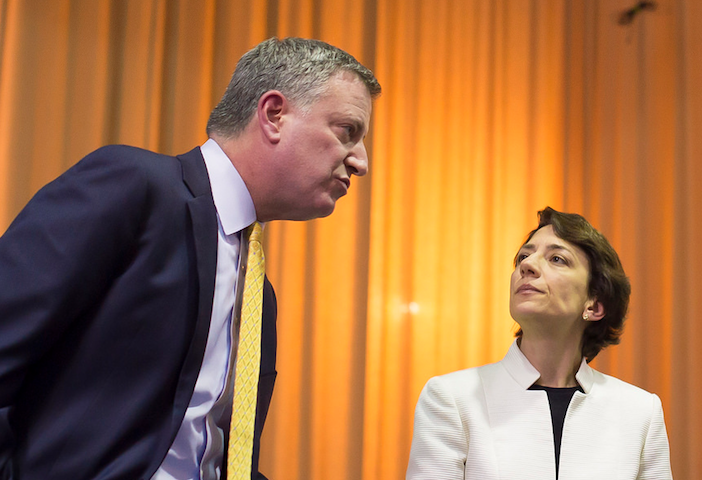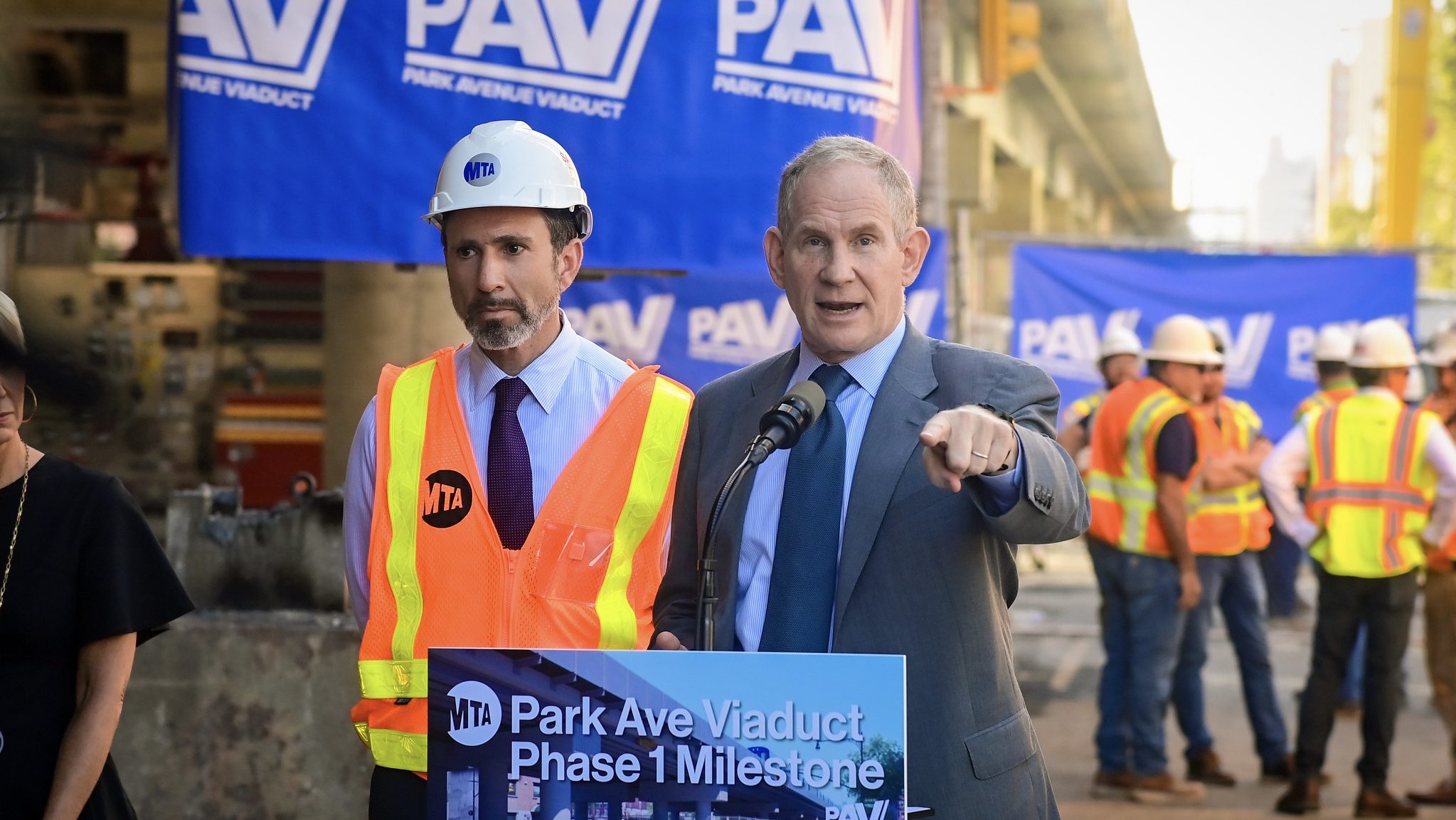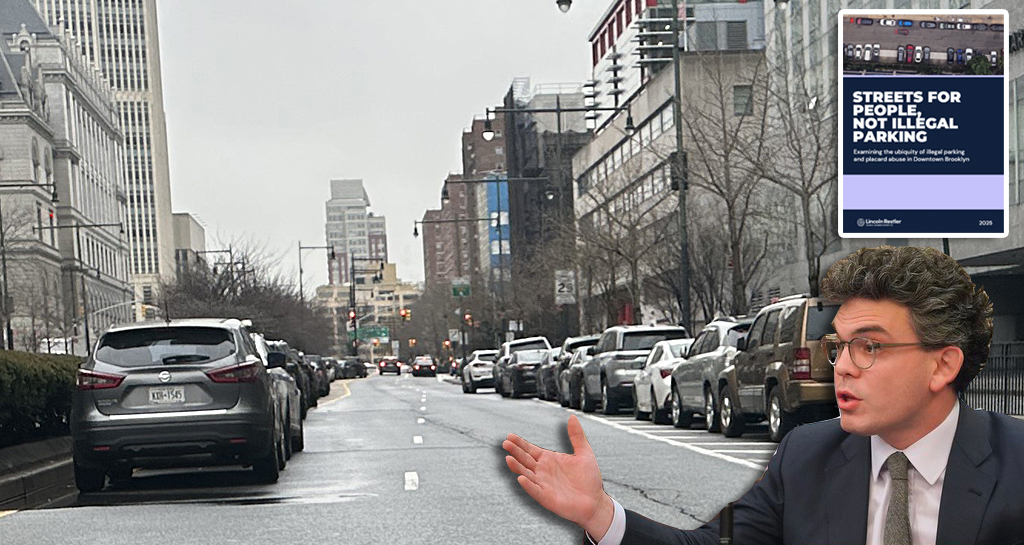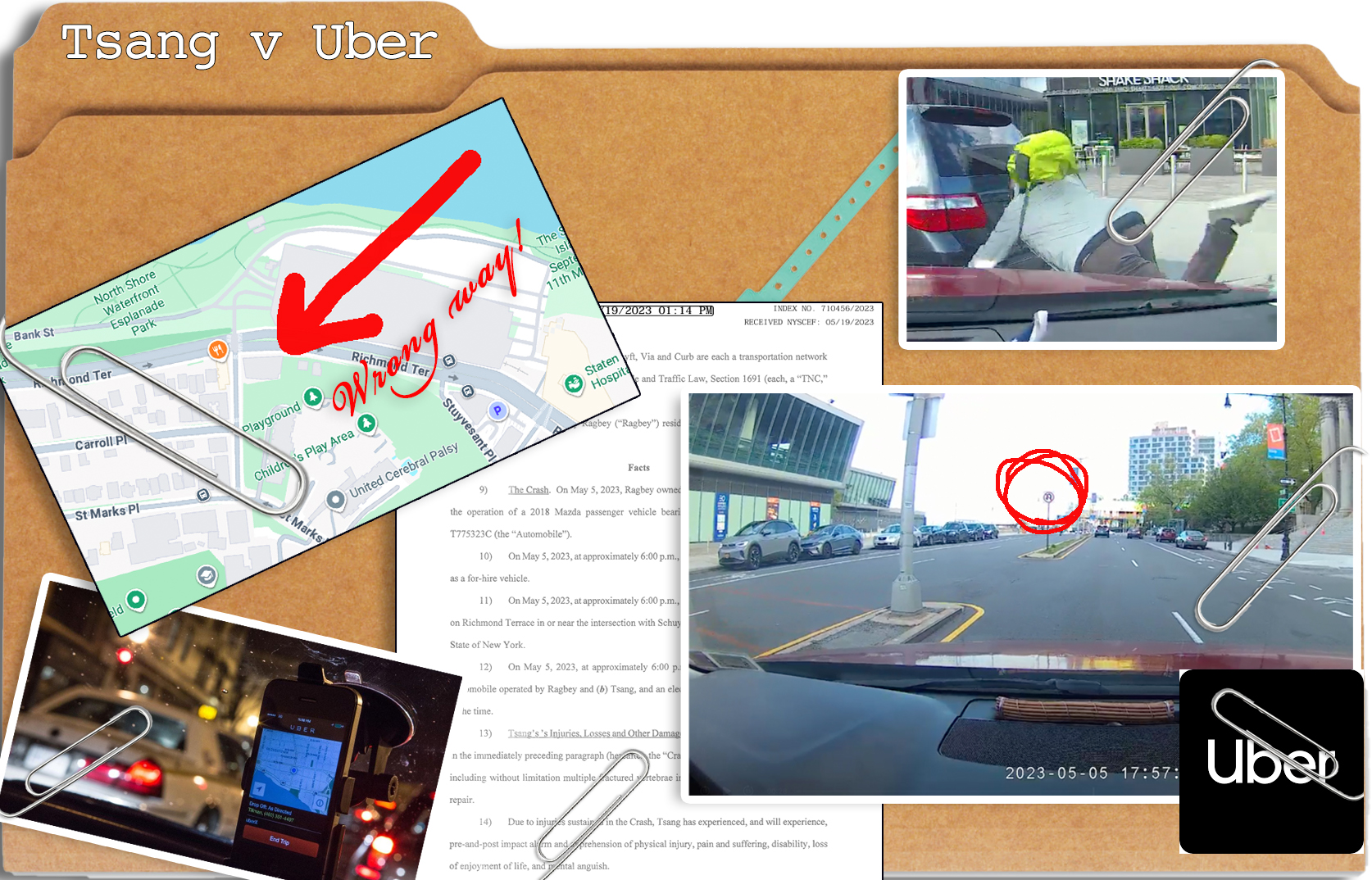Of course Polly Trottenberg quit the MTA board — it's a fake, no-power, fig-leaf body that ultimately offers no role for an intelligent, committed professional whose own boss let her down repeatedly.
That's the assessment of transit insiders, who were anything but surprised by the DOT commissioner's sudden resignation on Wednesday from her unpaid position on the panel that — at least on paper — oversees the MTA. Trottenberg had served as one of Mayor de Blasio's four appointees to the board since 2014.
Four key elements of Trottenberg's tenure stand out as a possible motivating factor for her decision to bail:
- In 2017, as Politico exhaustively reported, Trottenberg questioned Gov. Cuomo's use of a "disaster order" to suspend MTA board oversight of more than $100 million in contracts with private vendors.
- Trottenberg called out Cuomo’s “enhanced station initiative,” which critics said funded cosmetic improvements. An insider said Trottenberg was frustrated by how the board was rolled over.
- De Blasio did not give Trottenberg a mandate to coordinate New York City's official position on key matters — and left her blind to maneuvers he was making behind the scenes with Cuomo. Specifically, the city's board members did not know in advance that de Blasio had signed an agreement with Cuomo over congestion pricing until it was announced.
- And, like all MTA board members, she was frustrated to learn that Gov. Cuomo had changed the plan for the L train repairs without consulting the board.
Polly Trottenberg has provided independent oversight on the MTA Board, highlighting, for example, the travesty of renovating stations without making them accessible. It's reassuring that she'll remain until a successor is confirmed, and new appointees should emulate her example.
— TransitCenter (@TransitCenter) June 5, 2019
Very few people in the very close-knit transit community would speak on the record, but here's what bona-fide experts are telling us off the record:
- "Of course she must have been frustrated with de Blasio’s inattention (who wasn’t?), although his submission to Cuomo was evident from the get-go. The struggle over the enhanced station initiative was particularly frustrating for her in that the Cuomo micro management made the city fight a battle to control some of the destiny and direction of that work."
- "The L train contretemps left her stuck in the position of having to negotiate the relationship between the MTA and the dingbats on the community boards. That must have been frustrating for her as much as being undercut on the tunnel work by the governor in the end. She and the policy people at the MTA could have coordinated an excellent BRT substitute for the rebuild that would have left a boilerplate for NYC Transit President Andy Byford’s future line shutdowns to expedite repairs as well as a constituency for BRT itself. But that didn’t happen."
- "You could always see the frustration on her face on that board. Battling a political monster — Cuomo — who would stop at no end to get what he wants is hard. She can't do that alone. It stops hurting when you stop banging your head against the wall."
- "She quit because the governor runs the MTA, the board is a sideshow, and she's a busy person with a lot to do at DOT. That's why I would quit after five long years of this BS."
- "The MTA board is a limited instrument. It approves contracts and budgets but ultimately the policy making power rests with the governor via the executives he appoints. It's frustrating to spend time on a board that is not structured to actually exercise power."
- "She was frustrated with the L train change of plans, and with the way the governor treats Byford, who was also frustrated with the L train switcheroo. This is a fake board that makes it hard for even an insightful or powerful person to show up with an ambitious agenda."
- "Polly quit because de Blasio gave her no political support on critical issues like Cuomo's emergency order. De Blasio has provided no leadership and seems to have completely abdicated any city interest in the MTA by signing onto the Cuomo '10 Point Plan.'"
Let's stick on that point for a minute.
Insiders say that unlike Mayor Bloomberg, de Blasio very consciously — and, some say, foolishly — kept City Hall itself out of MTA board business. Bloomberg always had a City Hall insider on the board — at one point, Budget Director Mark Page ran herd — so that the mayor's position would be coordinated and all four members would speak with one voice.
But Trottenberg is not a City Hall insider — and was not empowered to speak for the mayor, insiders say.
"A DOT commissioner is not in City Hall and the other appointees are aware of that difference," said one source. "She never was empowered by City Hall to get everyone on the same page." (Indeed, one of the mayor's four appointees to the board, David Jones, openly criticized the mayor on his Fair Fares rollout.)
And, most important, Trottenberg felt let down by de Blasio's insistence that he would not challenge the governor over his emergency order, another insider said. As Politico reported, James Vitiello, Dutchess County’s representative on the 17-member board, rallied fellow board members — including de Blasio's members — to fight the governor over his allegedly illegal act. De Blasio refused to pursue it — a political decision that ceded power to Cuomo.
"He didn't want to antagonize the governor," one source told Streetsblog.
And, lest we forget, being an MTA board member really stinks. Commissioners are expected to sit through long meetings, listen to members of the public rant about their subway rides and work long unpaid hours reviewing complicated documents related to budget, policy and procurement issues. It is a thankless job.
"They need to change MTA board responsibilities and make the job less awful," said one insider.
Now, on the record, virtually everyone said Trottenberg would be missed.
Fellow board member Norman Brown called Trottenberg "a high-quality individual with absolutely irreplaceable experience at all levels of transportation policy-making freighted with an enormous Gravitas Quotient."
"Losing her voice on the MTA board is a loss for New York City, New York State and, given MTA’s central place in the Northeast Corridor, for the entire country,” he added.
Council Speaker Corey Johnson, who has called for the city to take over control of the subway and bus system from the MTA, did not use the occasion of Trottenberg's departure to push that agenda, merely telling Streetsblog, “Commissioner Trottenberg’s resignation is a loss for our city. She was a strong voice for New York City on the MTA board, which is something we need now more than ever."
"Polly was an independent voice on the board," said Danny Pearlstein of the Riders Alliance. "It will be valuable for New Yorkers to have the new mayoral appointees continue her diligent, honest approach to tackling the issues before the board. Off the board, it will continue to be valuable to have Polly and her staff at DOT working closely with NYCT and MTA Bus to expedite bus service improvements promised by both the City and the MTA."
Ben Fried of TransitCenter added: "Because the MTA board has limited power, to be an effective member you have to use your position as a bully pulpit. Polly did this well — her remarks at board meetings often shape press coverage. I think her signature moment was calling attention to the lack of accessibility upgrades in the Enhanced Station Initiative, which helped raise the profile of poor subway access for people with disabilities as a policy issue."
Transportation expert Charles Komanoff put Trottenberg's resignation into the current political and policy context:
Her resignation comes at an inopportune time. New York City has little more than 18 months to put in place the web of transportation initiatives needed to smooth the inauguration of congestion pricing. Foremost among them is bus improvements. While much of them, such as unobstructed bus lanes, is the province of city government, co-ordination with NYC Transit will be vital. Ditto for other parts of the menu like streetscape realignments, e-bike solutions for "last-mile" and peer-to-peer app-based carpooling. Advocates will have to step up pressure on the mayor to give Trottenberg free rein over NYPD, community boards, bikelashers and other obstacles.
City Hall did not immediately comment for this story. Trottenberg was unavailable to comment, according to the Department of Transportation, though she will meet with reporters soon, Streetsblog was told.
Editor's note: Streetsblog allowed sources in this story to be quoted anonymously because many have regular dealings with Trottenberg and de Blasio on daily transportation issues in New York City that are separate from both officials’ MTA responsibilities. As such, sources needed to be able to speak candidly about officials they will need to work with on unrelated issues.






